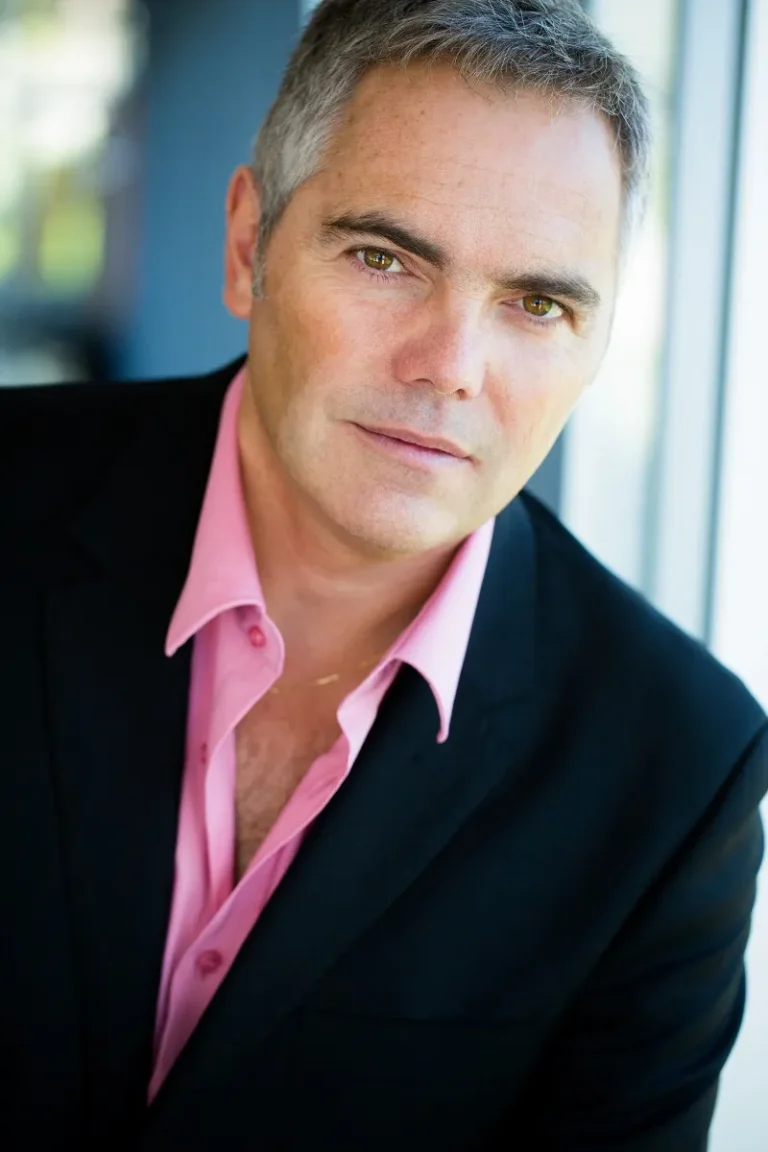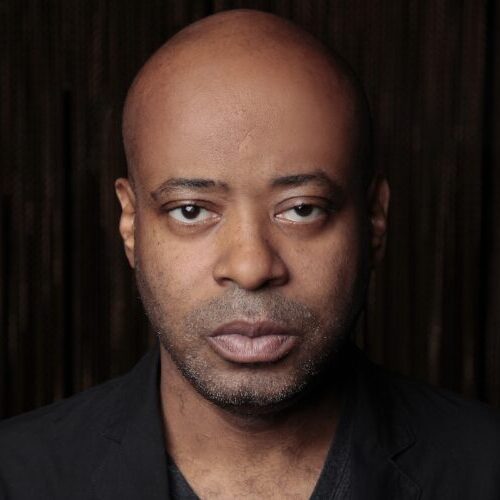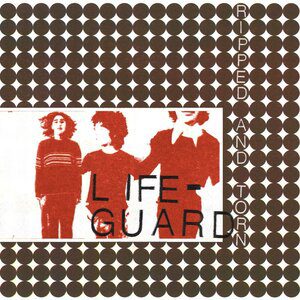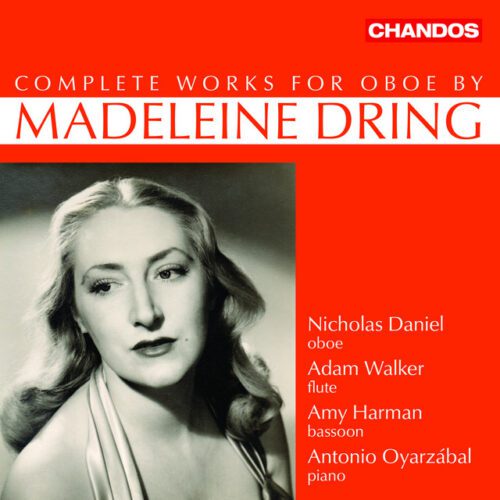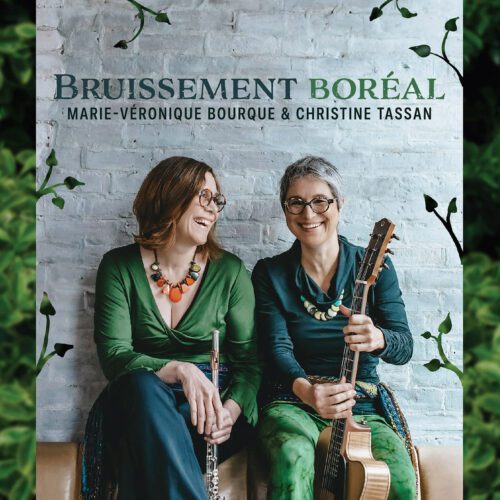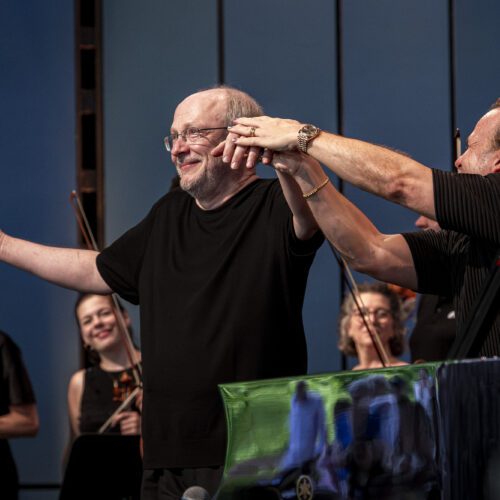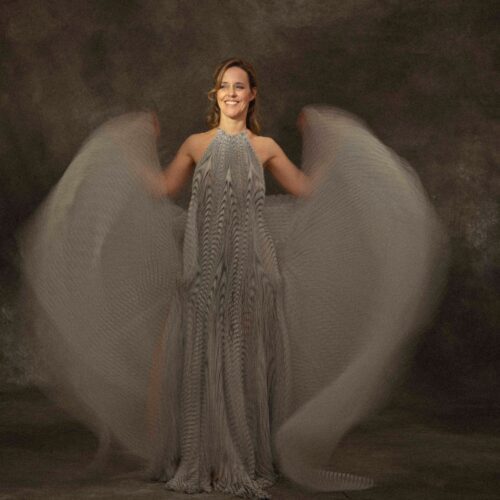On Wednesday evening, the Salle Bourgie paid tribute to a remarkable composer who would have loved to attend the premiere of her work. Rachel Laurin, who died on August 13, should have been the first composer in residence at Bourgie, but life had other plans.
It is in the hands of pianist Olivier Godin and baritone Marc Boucher that the Chant pour un Québec lointain, a three-part, fourteen-song cycle based on poetry by Madeleine Gagnon, published in 1991, is presented at its true value. Being an almost total creation (the first cycle having already been performed), we can avoid the incessant debates and inherent subjectivity toward interpretation expectations. We’ll just have to take it as it is, and that’s what counts.
Chant pour un Québec lointain appears to be firmly rooted in the French tradition of recital with piano and voice, or of the lieder as found in Schubert. At several points, parallels can be drawn with works from this repertoire. For example, the first poems evoke the journey through the landscapes of wild Quebec, and the mixture of melancholy, cautious optimism and references to death (the last movement of the first cycle is like a funeral march at times) is sometimes reminiscent of Winterreise. The prose poems and the rich harmonies and sonorities are reminiscent of Ravel’s Histoires naturelles, with an assumed freedom in the construction of the melodies. Nevertheless, the form is solid, accessible and clear. Some of the tunes, especially in the more danceable parts, seem to have been taken from popular or traditional music. However, it’s hard to break out of the French tradition, and we regret the lack of a truly “Québécois” feel, beyond the references and content of the poems.
The cycle undergoes a metamorphosis as it progresses. It begins by depicting the sublime yet rugged landscapes of the land but ends by illustrating not the landscapes, but rather the fundamental values of the Québécois of yesteryear, or their changing realities as the seasons go by. The narrator seems to be balancing his gaze between the past and the future. It’s also a cycle of contrasts, both in the music and in the lyrics. Often, we start a poem in a grave, severe tone, then shift to a lighter one, almost suddenly, and vice versa. Once again, we find ourselves balancing, this time between the themes of hope, or beauty, and the theme of death, or solitude.
The performance by Marc Boucher and Olivier Godin was exemplary. As the poems are not always suitable for singing, the baritone’s agility and strength brought the score to life. His voice, clear and powerful for its register, lent itself to the majestic character of many of the verses. The piano was just as good, with a score that didn’t sound simple, filled with rapid motifs and floating harmonies. As the music was literary and close to the text, one felt the two musicians in deep communion, with the piano often continuing the melodic lines of the voice. With Salle Bourgie superbly adapted to this concert format, the conditions were perfect.
The concert wasn’t perfect, but it won over the audience. The audience, sparser than the day before, heard a special work that deserves to be heard more often. It’s a fine tribute to Quebec roots and the sacrifices of previous generations, and its presentation by Salle Bourgie is just as significant in honouring the life of Rachel Laurin and her works. We look forward to keeping an eye on her other works on the program.
For more information on the other concerts dedicated to the memory of Rachel Laurin, visit the Salle Bourgie’s website.
